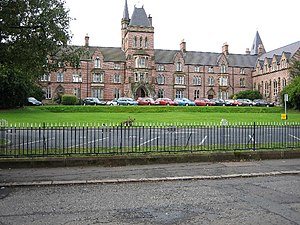 |
| The Programme for International Student Assessment (PISA) test on a school table in Germany (Photo credit: Wikipedia) |
The tests in maths, English and science were taken by 500,000 15-year old students around the world. The top 7 places are filled by far eastern countries and cities. Shanghai came top of the league table (Chinese cities are entered individually, rather than the country as a whole). The highest place gained by a European country is 8th place, for Lichtenstein. The US came even further down the league table than the UK, coming 36th in maths. Wales was the poorest performing region of the UK.
Many educationalists have criticised the league table. Prof Alan Smithers from the University of Buckingham pointed out that in many Asian countries, pupils are coached specifically for these tests.
However, Christine Blower, leader of the National Union of Teachers, said the results showed that countries with successful education systems "pay teachers well, respect the profession and encourage collaboration between teachers and schools".
Naturally, Education Secretary Michael Gove blamed the last Labour government for the UK's poor performance. For Labour, Tristram Hunt said that the coalition government's policies were taking the UK towards a poorer education system, not a better one.
What do you think about the results of the Pisa tests? Is the UK lagging behind in these key subject areas? Are the Pisa tests an accurate measure of performance?
You can take the Pisa test here.












